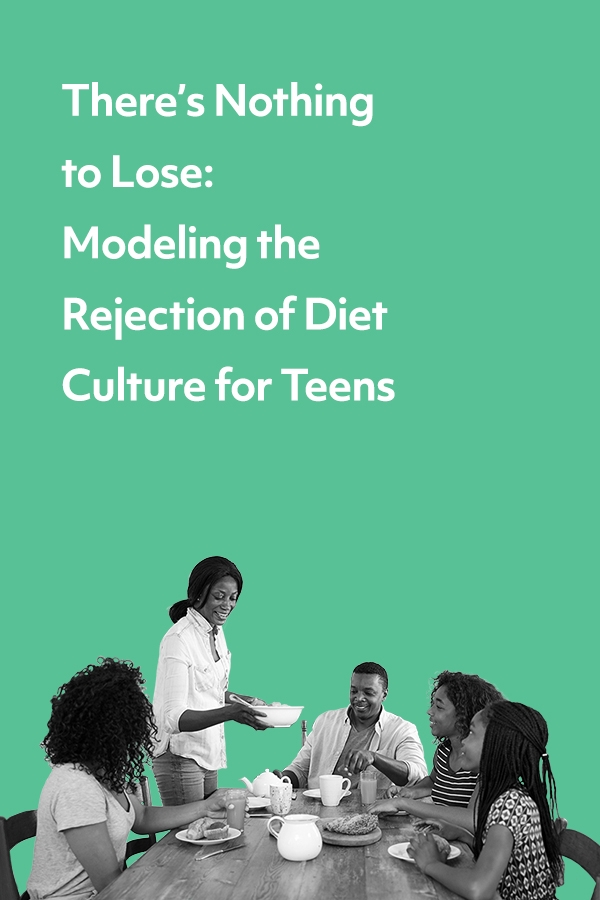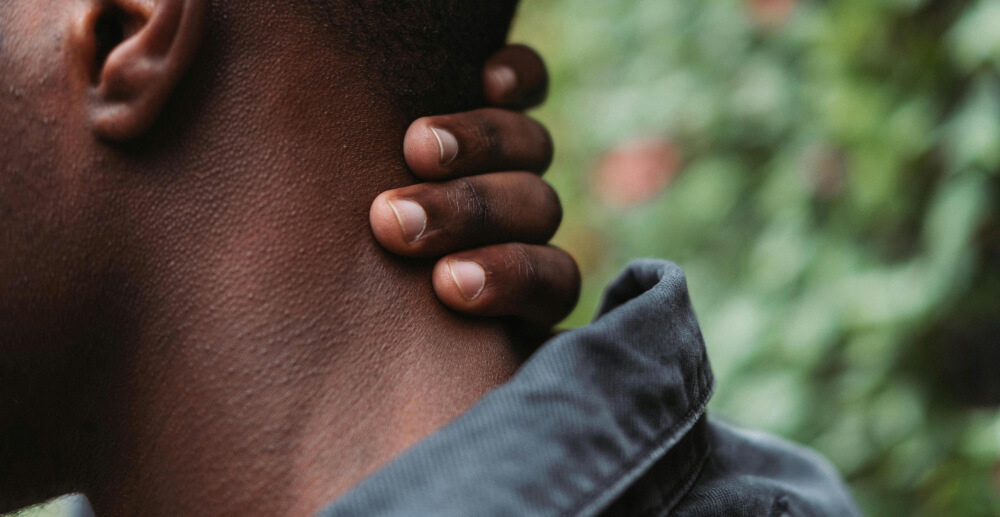After years of hoping my kids would “do what I say, not what I do,” I’m finally able to model healthy behaviors and attitudes.
For most of my adult life, everything revolved around my adherence to, or lack thereof, a diet or workout regimen. The orbit of my days rarely drifted, but when they did, I could pivot for the rare indulgence; I would later atone for a day of rest. Ultimately, this comfortable routine became a predictable mess, an unsustainable way to enjoy life and to set an example as a parent.
I found myself telling my children to do one thing regarding their body respect and another in modeling such. I might say to my children, “trust me and my judgment,” but show them I can’t even trust myself. I walked around our home, entering my meals into digital logs so that an app could calculate the direction of my nutrition day instead of listening to my own body. I routinely contradicted myself in their presence, coaching others on being strong, all the while chastising my own powerful body as something too weak to resist “forbidden” foods. As a running coach at their middle school, I shared the usual platitudes on loving oneself, encouraging preteen girls to appreciate what their bodies could achieve through sport. At the same time, at home, I would make phone calls within earshot of my son and daughter to lament the growing appetite brought on by the rigors of marathon training. I figured they wouldn’t be paying attention, but they were always listening.
It was convenient to think that diet culture’s hold on me was an invisible grip. I was ignorant to believe that my disordered eating would somehow skip a generation, naive to assume my children would be spared dieting through the cultural rebranding of wellness.
“It was convenient to think that diet culture’s hold on me was an invisible grip.”
So when it came time for my reckoning with diets, for me to take on the most demanding work of my life, I worried that it was too late for kids. I had watched them adapt to the many changes of our family before, but I knew I shouldn’t underestimate the dieting leviathan. It goes by many insidious names, supports lucrative businesses, and shapes public health. So how could I fight against a system that has many Americans willing to admit they would prefer death over being fat and come out on the other side flanked by my children unscathed?
Although I couldn’t turn back time, I could rewind the discourse in my home. I began to say and do things that signaled the rejection of diet culture. Just as I had done countless times before when I wanted them to learn something, I said what I wanted them to do, showed them how to accomplish it, and then reinforced it.
Hear Me
I announced to both of my kids that I would never mention my weight again and that I would not be forming a menu around the restriction of any kind henceforth. I didn’t clear the cabinets; I added to them, listening to my anti-diet coach when she asked me to stock up on all my previously policed items. I explained that we would now have an abundance of the foods we had previously only gotten for special occasions, things like cookies, cakes, chips, and ice cream. Finally, I told the kids I would throw out my scale and stop getting weighed at the doctor. The announcements were all met with a rather unenthusiastic “okay,” and I didn’t care. I wanted them to remember my words for what would come next.
Watch Me
A large part of dissimilation from diet culture is rewiring our thinking around morality and food. So, at the suggestion of my partner—to remind me that food was neither bad nor good, it just was—I posted notes in my cabinets, on my bathroom mirror, and other areas where diet culture might haunt me with the ghosts of doubt. My daughter remarked how strange this was, so I playfully left her a post-it affirmation on her desk the next day. It now hangs in her bathroom, something I choose to believe is in solidarity rather than in jest. Recently, I began to wear just a sports bra and running tights to train, leaving behind the shirts I used to cover what I thought was too much, not enough, and vulnerable to the outside. Each time I step out in ways that ask me to show up, I demonstrate that discomfort is part of the rebellion, that much like my choice to stop drinking, the resistance is the point.
Lastly, the work I am doing isn’t just about the impacts on my children, but also on how I care for others as a whole. Diet culture requires us not to fear fat but hate it, vilifying fat people. I can reinforce anti-diet practices by addressing anti-fat bias within myself and the surrounding culture. In her book “What We Don’t Talk About When We Talk About Fat,” Aubrey Gordon explains that “anti-fat bias is a cultural force that simultaneously shapes and is expressed through our most commanding institutions; government, healthcare, education, and media. Anti-fatness isn’t just something each of us bears—it’s something we become.” In that vein, to admit that you see fat as the worst thing that could happen to you or to anyone else means you must reconcile with how you define health and humanity. It is a bitter and necessary pill to swallow if you genuinely want to reject diet culture and control. As a parent, I teach my children that discrimination in all forms is wrong, so how can I let this kind slide as something acceptable and, worse yet, morally superior?
Follow Me
The decision to challenge my relationship with diet culture, wellness, and what it means to be healthy has changed my life. I encourage anyone to learn more about this movement through the leadership of experts like Lindo Bacon, Aubrey Gordon, Roxanne Gay, Cara Harbstreet, Christy Harrison, Isabel Foxen Duke, and many more. These people have written books and blogs and provided classes, coaching, and more.
However, implementing anti-diet practices doesn’t mean anything is more manageable; in fact, it’s just the opposite. I still struggle to resist dieting, feeling the walls cave in around me at the grocery store, in the mirror, and late at night. Even so, I can see the light at the end of the tunnel, the sustained practice of rejecting a part of a culture that seeks not just to shrink but to destroy me. I want my children to question forever what society tells them they should be, should do, or should call “good,” which begins with how I conduct my own life.
There is no better lesson to teach and for my children to learn.









